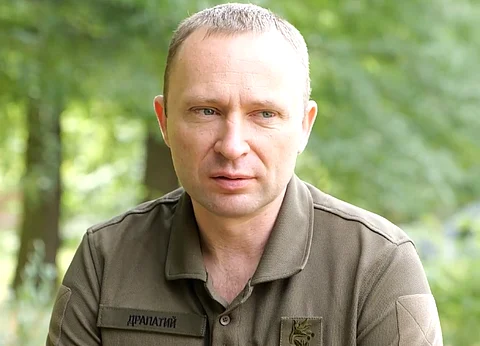

Lieutenant General Mykhailo Drapatyi, the commander of Ukraine’s Ground Forces, announced his resignation on Sunday, citing personal responsibility for a deadly Russian missile strike on a Ukrainian military training base that left 12 soldiers dead and more than 60 wounded.
The attack targeted the 239th training ground near the city of Samar, formerly known as Novomoskovsk, and struck units from the 158th and 33rd Separate Mechanized Brigades, according to Ukrainian media reports.
In a public statement posted to social media, Drapatyi said, “This is a conscious step dictated by my personal sense of responsibility for the tragedy at the 239th training ground, as a result of which our soldiers died.” He also confirmed that an official investigation into the strike has been launched.
Drapatyi, who had served as commander since December, criticized what he described as systemic failings within the military, stating that Ukraine "does not have a right to live in a system that does not learn"—a pointed reference to repeated security lapses that have left Ukrainian military facilities vulnerable to Russian attacks.
The resignation comes amid growing scrutiny of Ukrainian military preparedness following a string of deadly strikes on training camps across the country. In September 2024, a Russian missile attack on the 179th Higher Educational and Training Center in Poltava killed at least 51 soldiers and injured nearly 300 others.
On April 13th, a further missile strike on a military facility in the Sumy region—just 30 miles (48 km) from the Russian border—killed more than 31 Ukrainian soldiers during a graduation ceremony. The incident sparked internal criticism and calls for accountability among Ukraine’s political and military leadership.
On May 20th, a strike on another Ukrainian military training site near the city of Shostka, in the Sumy region, killed at least 70 Ukrainian soldiers including 20 foreign instructors.
Drapatyi resignation highlights mounting pressure on Ukrainian commanders to reform internal military practices amid an increasingly aggressive and targeted Russian campaign against Ukraine’s rear-echelon training infrastructure.